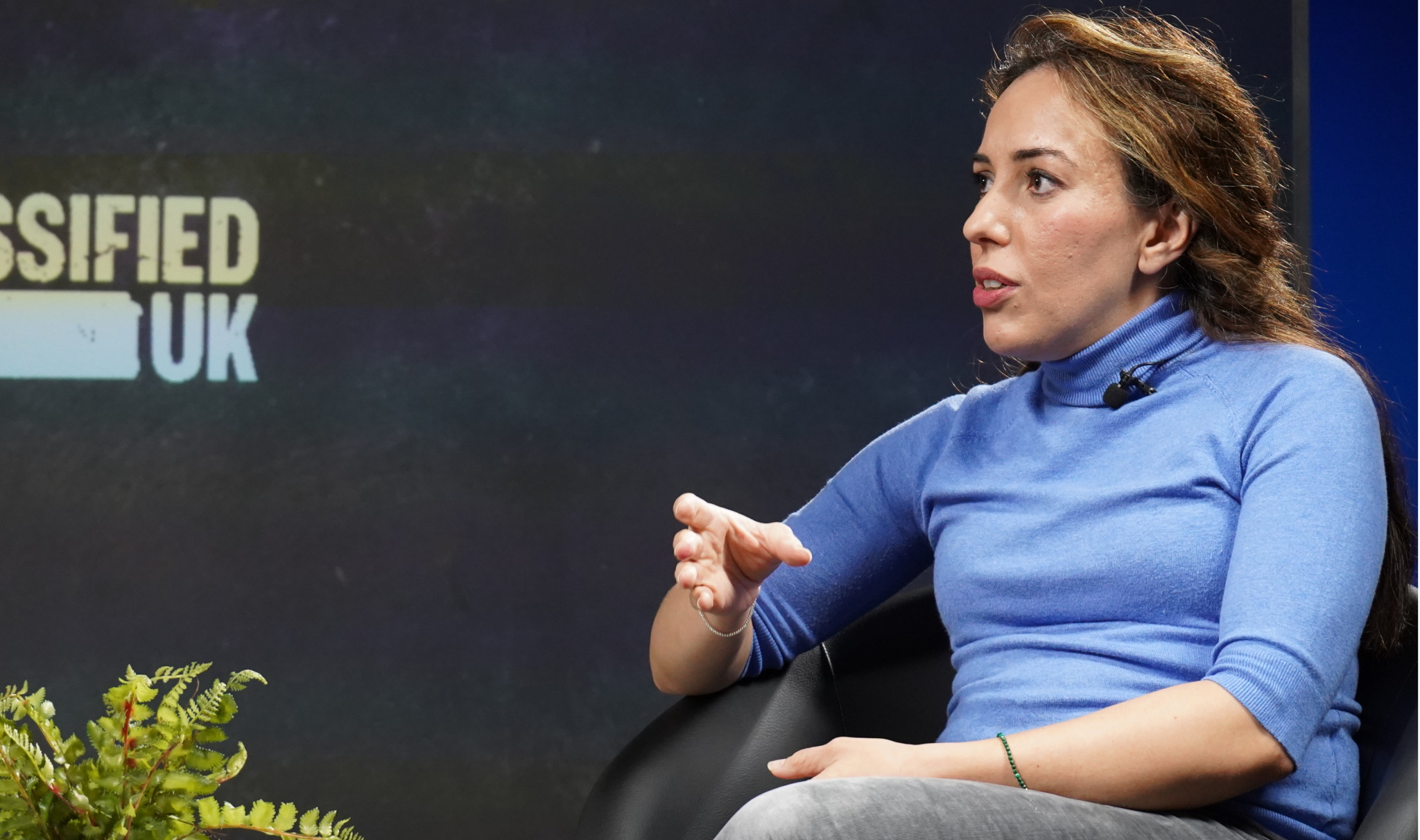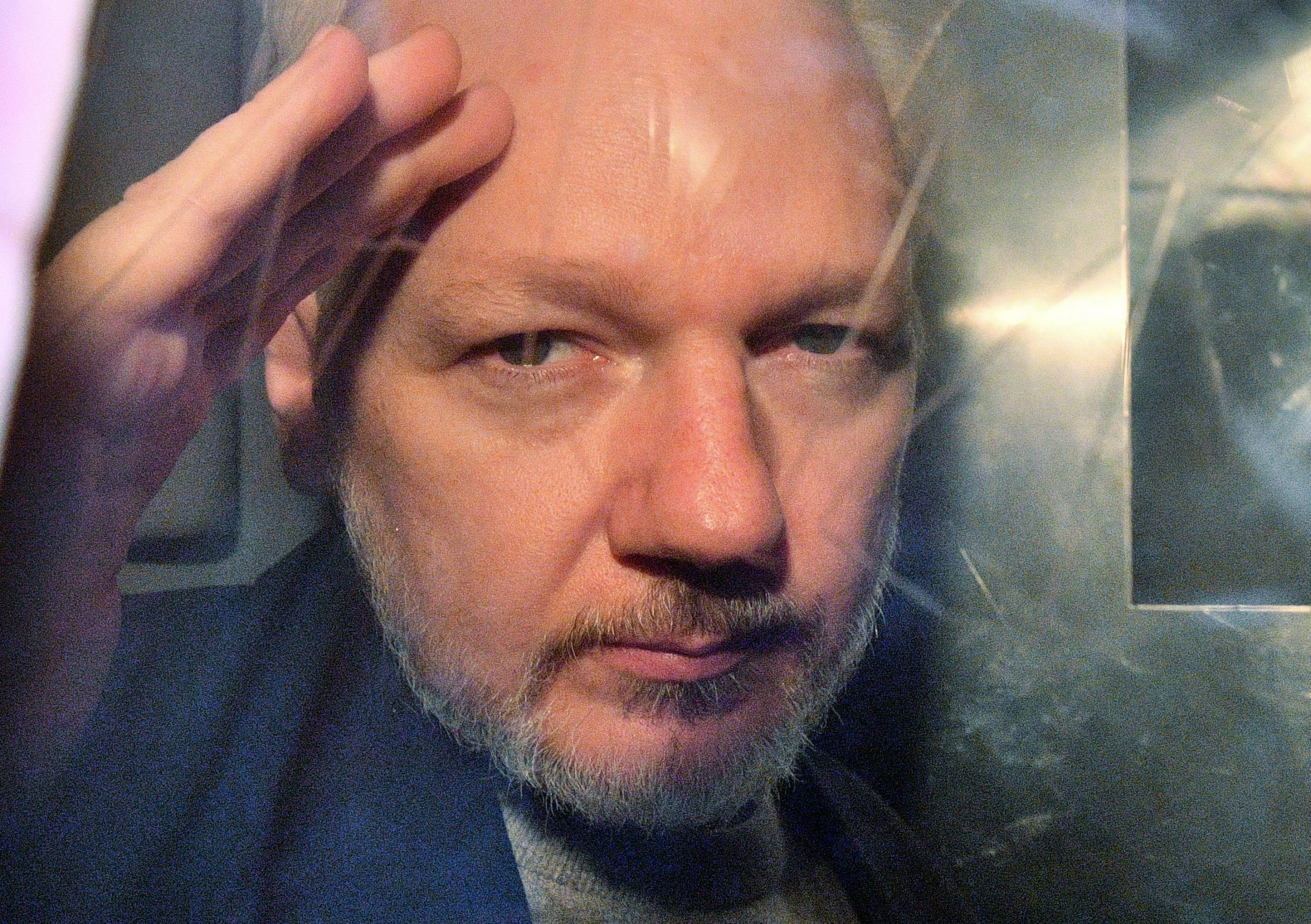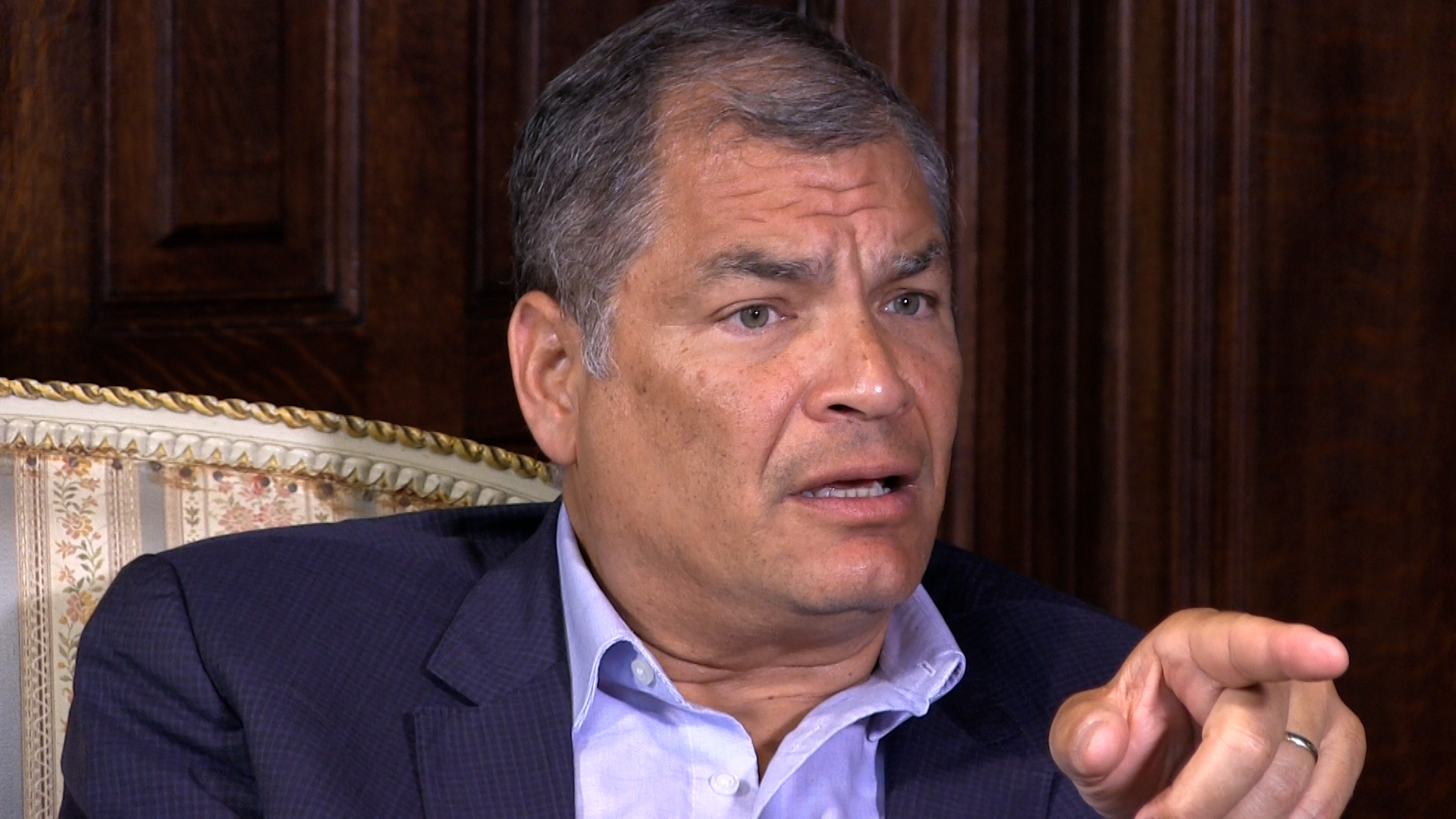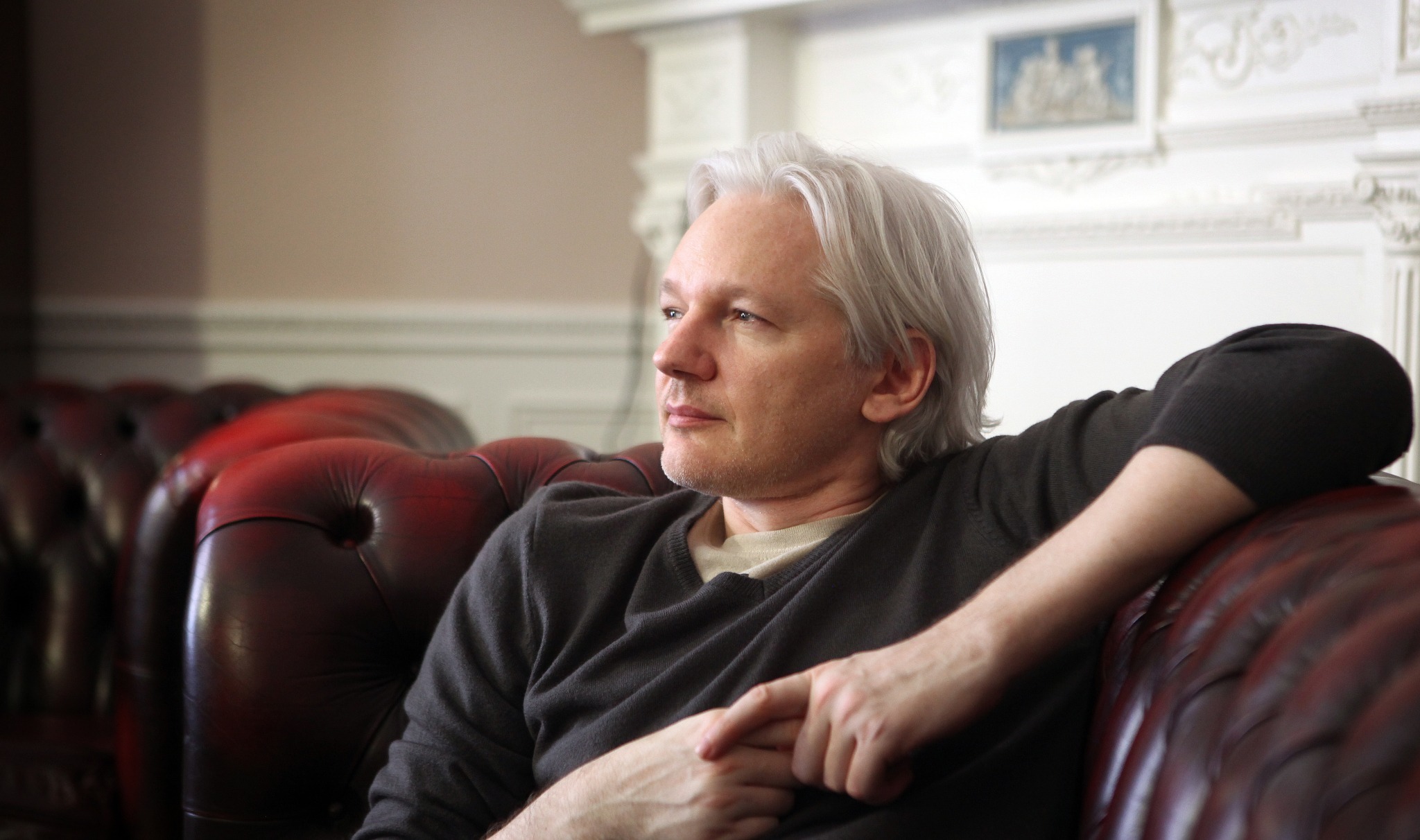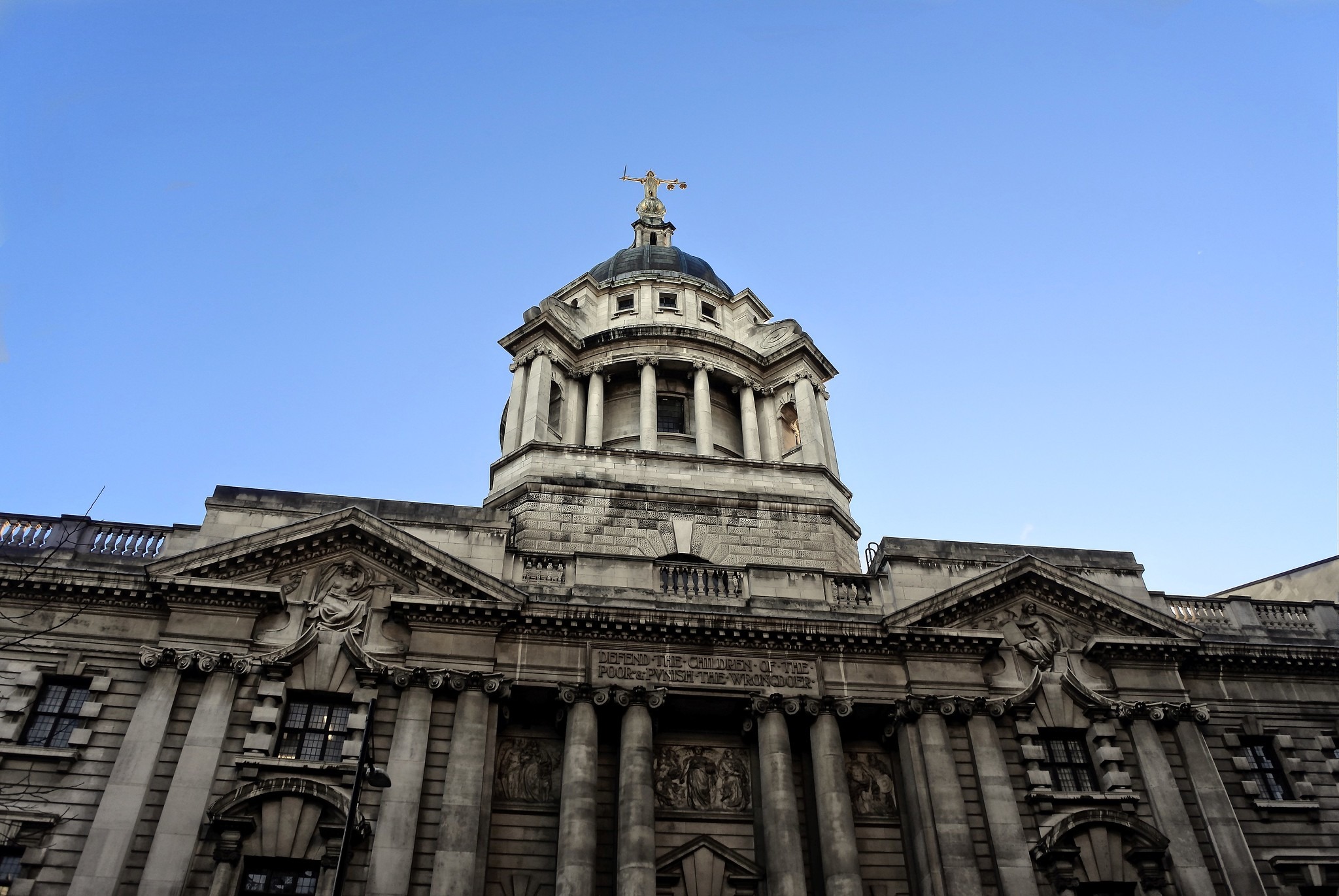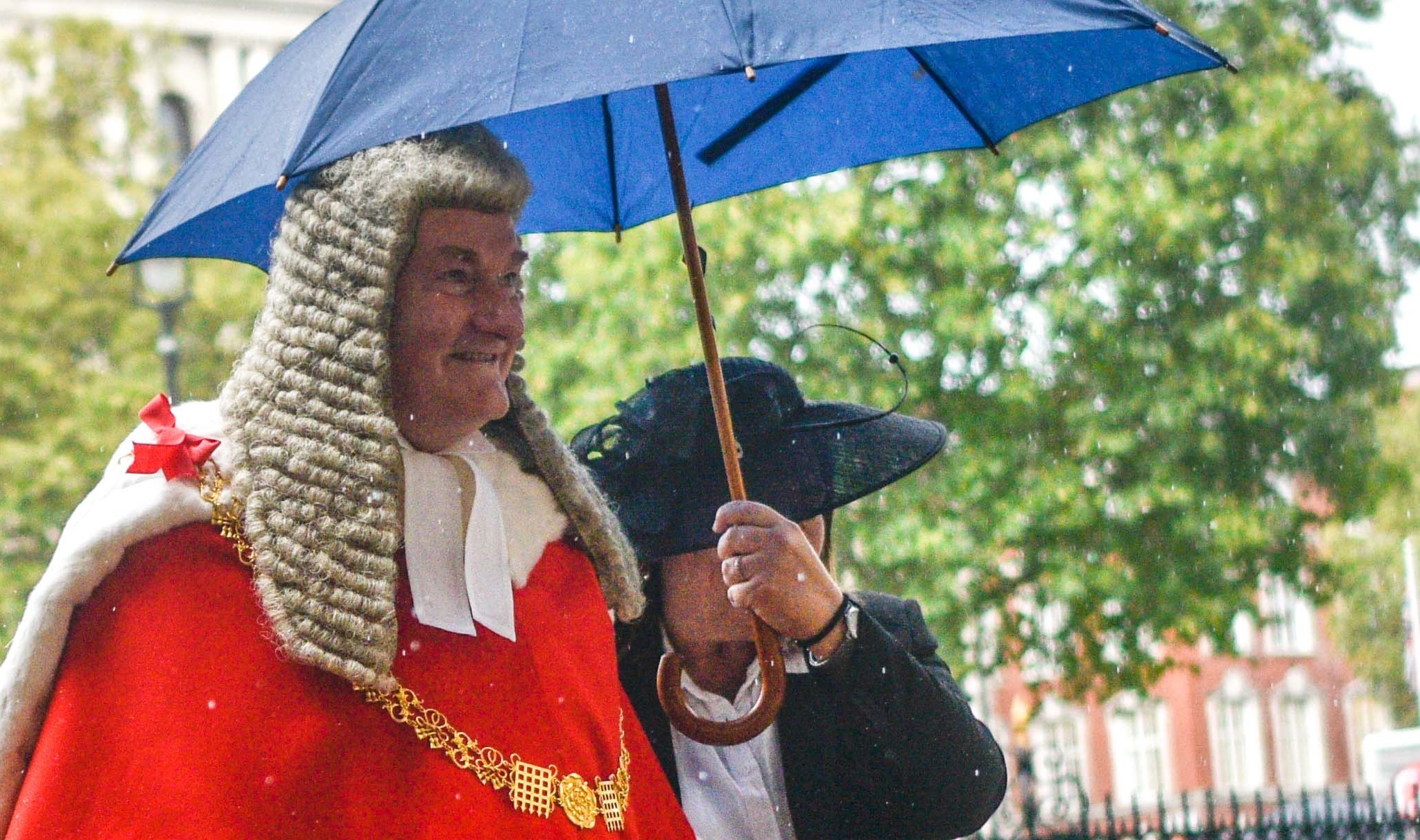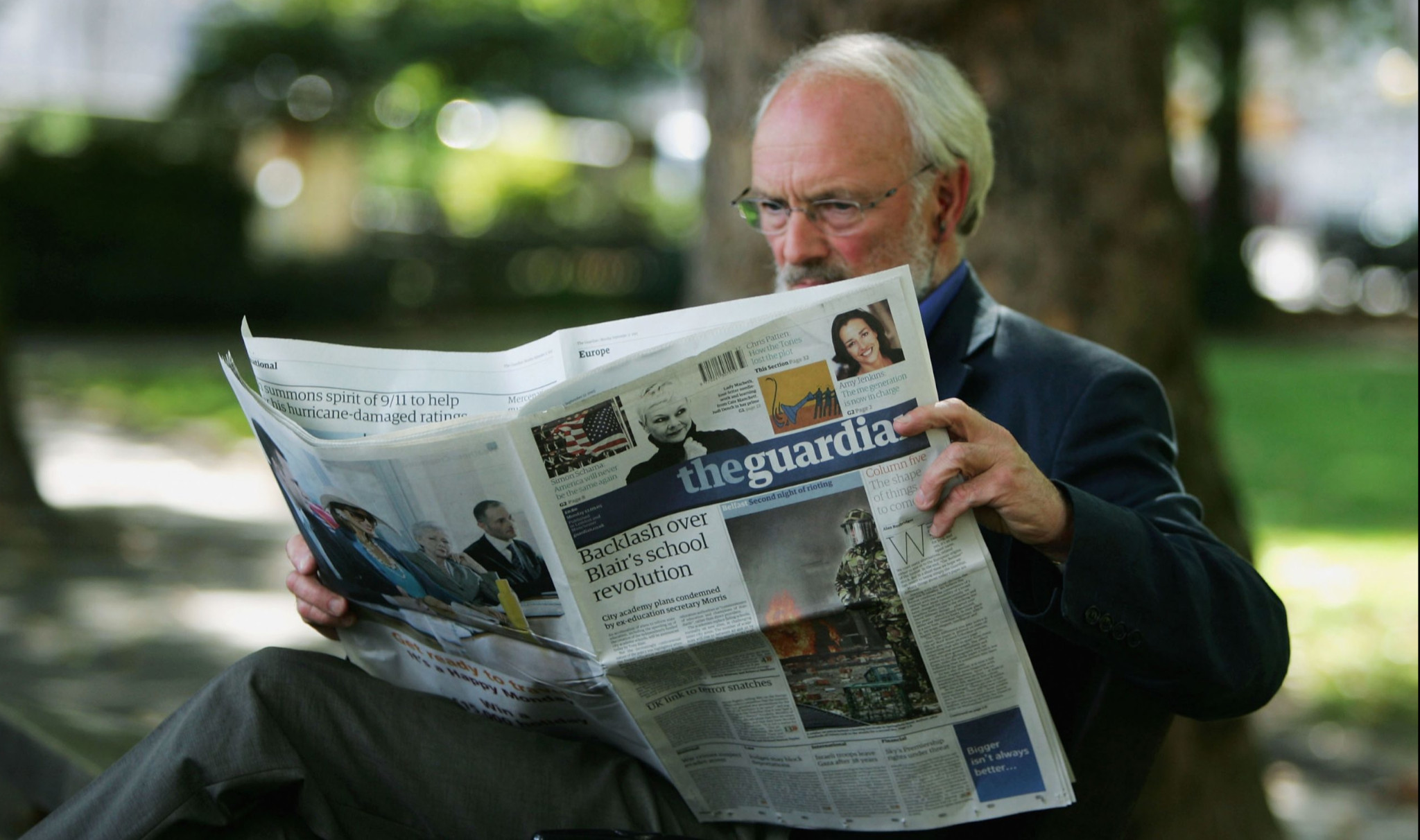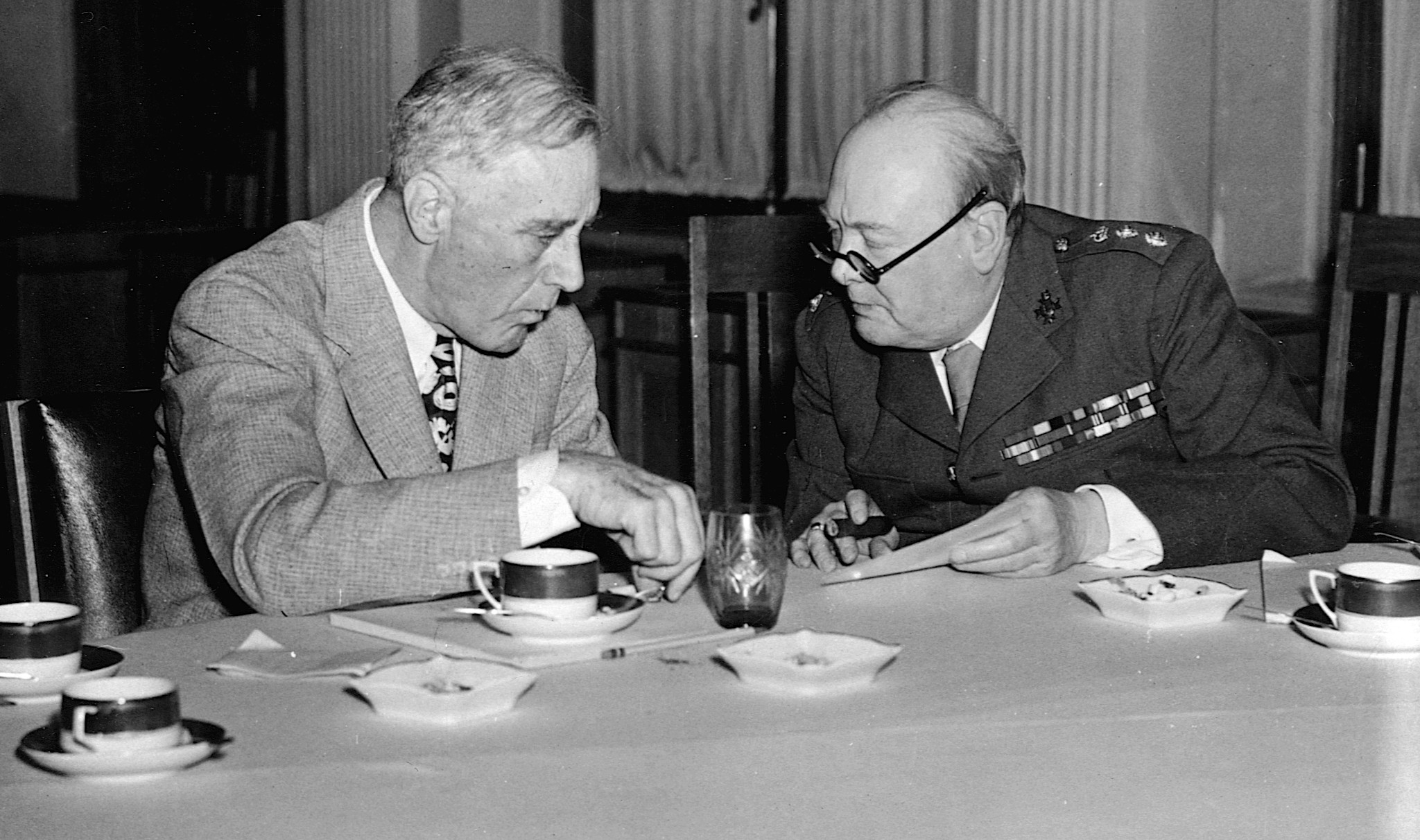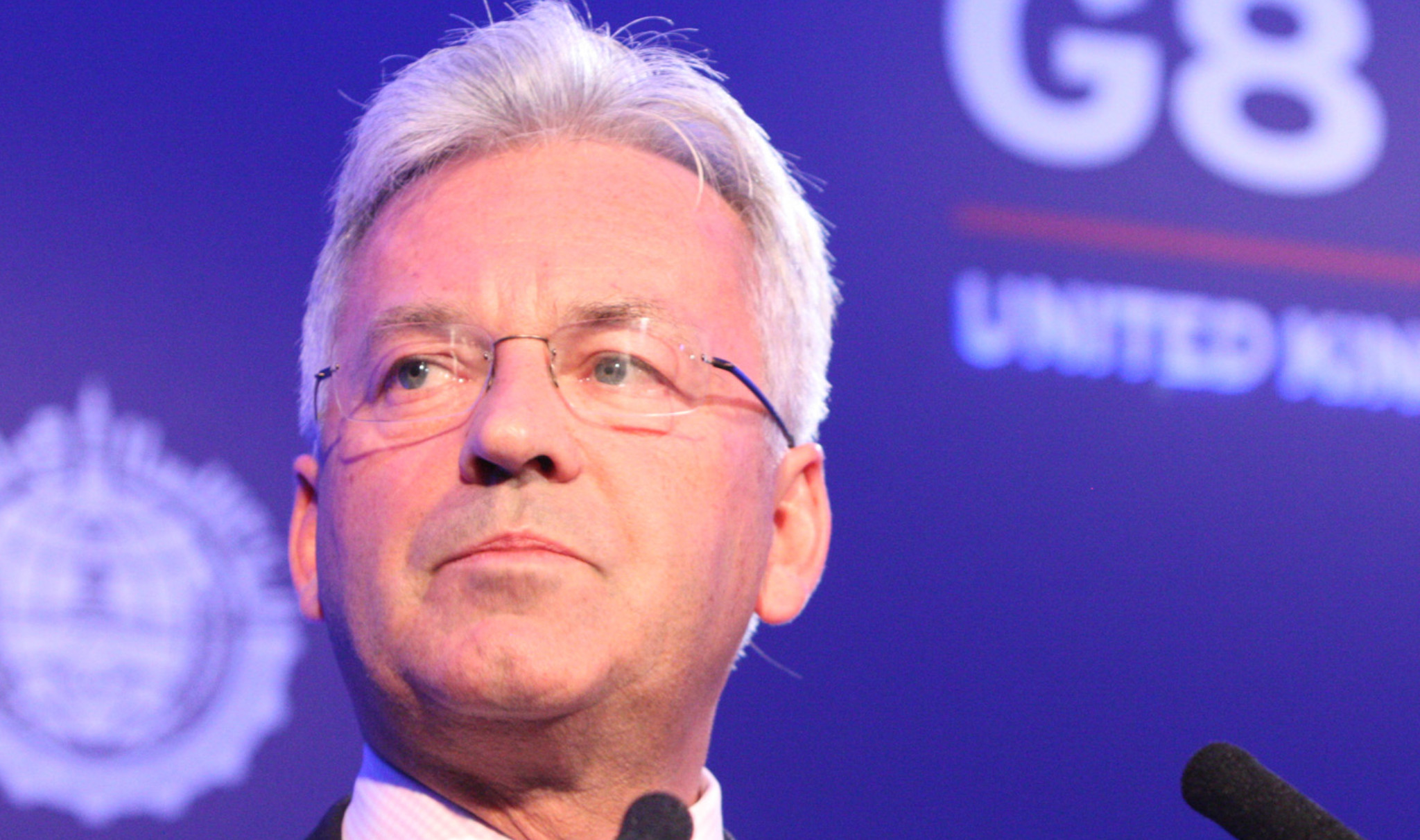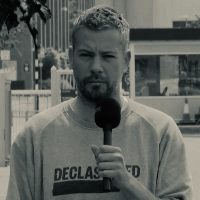“Julian is fighting for his survival and he’s going through hell, that’s the best way to put it,” Stella Assange says when I ask how he’s doing.
The wife of the world’s most famous political prisoner is speaking to Declassified as part of her relentless battle to save her husband’s life.
“Sometimes it’s been really, really very difficult for him, and sometimes when he’s able to see the children, when he’s with the children, when there’s progress in the case, then he’s energised,” she adds. “And he’s energised by all the support that he sees out there for him. He gets letters of support and expressions of support constantly.”
One thing immediately noticeable when talking with Stella is she has the same unusual intensity and focus as her husband. For anyone who has met Julian, the similarities are striking.
He has now been in Belmarsh maximum-security prison in London for three and a half years. He was initially put in there ostensibly because of a bail violation after he was given political asylum by the Ecuadorian government.
In 2012, UK courts had ordered Assange’s extradition to Sweden to face questioning over sexual assault allegations. The case was dropped in August 2019, soon after Assange was put in Belmarsh. He is now being held as a remand prisoner at the behest of the US government.
“Belmarsh has about 800 prisoners, and it’s a very harsh regime because it has very serious offenders,” Stella says. “It also has people on remand for non-serious offences. And it has people who are like Julian, where there’s some kind of political aspect to it. Everyone is treated as if they were a serious offender. This is what distinguishes Belmarsh from other prisons.”
“When Julian calls, for example, we only get ten minutes at a time,” she adds. “The explanation for this is that they’re surveilling the phone calls and there’s a technical limitation to how they can surveil the phone calls. So that’s incredibly frustrating: to have just ten minute chunks of phone calls.”
She continues: “Julian’s in his cell for over 20 hours a day, but it varies from day to day. During lockdown, it was for a critical week where there was an outbreak of Covid in his wing, it was 24/7 for several days in a row.”
Last month, Assange tested positive for covid and was in solitary confinement in his cell for 10 days. He has a chronic lung condition.
“It’s not like you imagine prison like you see on TV,” Stella says. “The prisoners don’t sit together when they eat. They have to queue up to collect their food and then they have to eat in their own cell. Isolation is the norm. Sometimes they’re allowed out to collect medication, to collect food, to go to the yard, which should be once a day for an hour, but in practice it’s less. Social visits and legal visits, the visits occur a few times a week, if that. Sometimes visits get cancelled, like with the death of the Queen.”
Inside Belmarsh
The regime in Belmarsh is a purposefully harsh one. “You’re basically not in control of your environment—or anything,” Stella says. “You’re not in control of the routine. You’re not in control of what you eat, how you eat. Other people have control over your physical environment and over your person.”
In 2020, Declassified published a story showing Assange was one of just two inmates at Belmarsh, which then housed 797 prisoners, being held for violating bail conditions.
The figures showed that more than 20% of the prison population was held for murder, while nearly two-thirds — or 477 people — were imprisoned for violent offences. A further 16 inmates were held for offences related to terrorism, including four people who planned to carry out terrorist attacks. Assange himself has never been charged with a violent offence.
“I think they keep him in Belmarsh because they can get away with it, because it’s the most effective way of silencing him, precisely because of this extreme regime that Belmarsh is known for,” Stella says.
“It’s a punishment in itself. The very fact that he is in prison for having exercised his right to seek and actually obtain asylum…that’s a right that’s enshrined in the Universal Declaration of Human Rights. That is a long recognised right that every person has. And it violated a technicality, and it’s usually treated as a technicality if there is a sufficient reason for violating the bail. In this case, there undeniably was.”
Stella, whose real name is Sara, continues: “Very rarely is it actually punished with prison time, and he finished serving that prison sentence in October 2019. But effectively it’s an indefinite sentence because while he exercises his right to challenge the US extradition request, the UK keeps him in Belmarsh at the request of the American government.”
‘Worse than death’
Assange’s treatment in the US would be much worse. In 2020, UK District Judge Vanessa Baraitser blocked Assange’s extradition to the US because of the risk of suicide under the onerous conditions he would face.
Baraitser’s decision was based on the fact that, if convicted, Assange would likely be moved to the ‘Supermax’ Administrative Maximum Facility (ADX) in Florence, Colorado, home to convicted terrorist Abu Hamza and Mexican druglord El Chapo.
A former warden of the prison has said: “There’s no other way to say it — it’s worse than death.”
Pre-trial, Assange could also be held under Special Administrative Measures, or SAMs, where inmates spend 23 or 24 hours a day in their cells with no contact with other prisoners.
The US then appealed Baraitser’s ruling, saying it would promise that Assange would not be subject to SAMs or housed in ADX. Crucially, though, the US reserved the right to reverse these promises in case of further violations by Assange, which can be easily invented.
In December 2021, the UK High Court agreed with the US appeal and reversed the lower court decision not to extradite Assange.
“There’s no other way to say it — it’s worse than death.”
Many believe Assange would commit suicide before being put on a plane to the US.
“I’m convinced that Julian cannot survive under the conditions the US will put him in,” says Stella. “I have no doubt they will put him in a regime of isolation. The only reason he’s surviving now is because he’s able to see me, to see the children. He has a hope of fighting extradition to the US.”
She adds: “He’s facing trial in the Eastern District of Virginia with a jury that will be composed of people who are either working for or somehow linked to the national security sector, because that is what that area is. That is the jury pool. He faces 175 years under the Espionage Act, under which there is no defence. He cannot explain, he cannot justify, he cannot defend himself from the accusation.”
She pauses. “Under the indictment, Julian is accused of conspiring with a source to publish information: receiving that information from the source, possessing that information, and communicating it to the public. That is journalism. And if you define journalism as a crime, then Julian is guilty and he has no defence.”
Due process
The original ruling which blocked extradition to the US did so on very narrow grounds. Aside from mental health concerns, Judge Baraitser agreed with every dot and comma of the US indictment.
The current appeal by Assange’s lawyers against that original ruling should be heard next year. It is likely to focus on substantive issues of press freedom and the political nature of this prosecution.
Soon after the 2020 decision, David Davis, a former chair of the Conservative Party who served as Brexit minister in 2016-18, told Declassified the US-UK extradition treaty is “massively asymmetric”.
He also said Judge Baraitser “got the law wrong” by claiming the treaty included political crimes.
“Parliament made clear in terms that it would not cover political crimes,” Davis said.
“The US-UK extradition treaty explicitly prohibits extraditions for political offences,” says Stella. “So this is one of the very obvious aspects for which the extradition should be blocked. And in fact, when the indictment first came down, there were all these legal commentators I recall at the time, well, one or two, but prominent people, who said, ‘well, this can’t really be a serious extradition effort, because of course it will be blocked.’”
“The US-UK extradition treaty explicitly prohibits extraditions for political offences.”
‘Deference to the intelligence services’
Another bizarre aspect of the Assange case is that the state requesting the extradition of the defendant is on record as spying on his privileged conversations with his defence lawyers—and plotting to assassinate him.
In the Pentagon Papers case in the 1970s, US whistleblower Daniel Ellsberg was charged with leaking a top-secret report on the history of the Vietnam War which eventually helped end that devastating conflict.
Ellsberg’s case was thrown out after it was revealed the Nixon administration had broken into his psychiatrist’s office to find dirt to smear him in the media.
In the Assange case, none of the revelations about the corruption of due process seem to matter. Given the same agency behind the prosecution has plotted to assassinate the defendant, why are we still here?, I ask Stella.
“Well, it’s a good question. I try to understand it myself. What’s different from the Pentagon Papers case? I think what’s different is a deference to the intelligence services that even outright criminality is business as usual.”
The darkness
It should be clear to any independent observer that the UK judiciary and penal system has been captured by the state in the Assange case. The evidence is public and extensive.
“There’s an extraordinary conflict of interest that no one can talk about, which is that UK government ministers have been extremely hostile to Julian,” says Stella.
“But not just that. They’re involved in secretive groups like Le Cercle, which Declassified has written about. A secret CIA-backed group with UK ministers, including current sitting ministers, where you can’t even find out where they meet or when they meet or what’s on the agenda.”
She pauses, exasperated. “Julian has been the victim of a CIA plot to assassinate him.”
In December last year, Declassified published a story revealing eight current Conservative parliamentarians are associated with a secret rightwing group called Le Cercle which a former minister wrote was “funded by the CIA”. This includes recent UK Chancellor Kwasi Kwarteng and Sir Alan Duncan, the foreign minister who orchestrated the arrest of Julian Assange in 2019.
“I have to stay optimistic that the courts can redeem this situation.”
Declassified also revealed that Duncan was a 40-year “good friend” of the High Court judge who green-lighted Assange’s extradition late last year.
“There’s a disconnect between when we talk about democracy and separation of powers and the independence of the judiciary and the executive,” Stella says.
“The reality of it is that the executive is wining and dining with people who are plotting the assassination of my husband. I don’t even know how to approach explaining this reality. In a way, the more you see the darkness of it, the more a kind of classic liberal I become, in the sense that the only thing we have is the insistence of principles of independence and fairness and equity and all these things, because there’s nothing else.”
She continues: “These are concepts, they’re the only thing that stand between us and a complete darkness of raw power where they can just crush you. So I have to stay optimistic that the courts can redeem this situation, because the alternative is that there is just darkness.”
Media failure
Noticeable during the whole Assange saga is the lack of support from mainstream British journalists. No UK newspaper has launched a campaign for his release, and there has not been a single investigation of the legal process in any paper either. This stands in contrast to the media in Italy, Spain, Germany and the US.
“It’s a very interesting thought experiment,” says Stella. “If the newspapers, especially the ones that collaborated with WikiLeaks, which isn’t just the Guardian, it’s also the Telegraph, it’s Channel Four, it’s the BBC, the Independent, all of these had agreements with WikiLeaks about publishing those materials. It was a joint venture, a joint publishing venture.
“If they had reported fairly and diligently and critically about this case, would Julian be in Belmarsh prison today? I don’t believe so. I don’t think he would have spent a single day in prison because in many ways, for many years, they enabled the hounding of Julian out of negligence…because WikiLeaks challenged the old order media, the legacy media.”
“They are going after him as a journalist, not as a whistleblower, or anything else.”
She adds: “Julian’s profile was also much higher than the editor of the most well-established newspaper in the UK, for example. Most people don’t know who that is. So Julian was an inconvenience and was changing the landscape. I think there was a lot of jealousy there. But these petty personal issues among journalists, it’s kind of endemic to journalism or to some of the journalists class I’d say, has had such a pernicious effect because Julian is a test case.”
The case has been described as the biggest threat to the first amendment in the US and press freedom globally in generations. Free expression and press freedom groups across the world have condemned the US prosecution—and the British imprisonment.
National security whistleblowers have always been criminalised, but this is the first time a journalist and publisher faces life in prison.
“What is not properly understood, I think, because of their failure to report accurately, critically, or diligently, is that Julian is being prosecuted as a journalist,” Stella says. “They are going after him as a journalist, not as a whistleblower, not as anything else. The activities that they have criminalised are journalistic activities.”
‘War of attrition’
In 2016, the UN Working Group on Arbitrary Detention found Assange had been arbitrarily detained by Britain since 2010. The UN Special Rapporteur on Torture, Nils Melzer, later accused the British of “torturing” Assange. Both stories were barely covered in the British media.
“For the first nine years, until he was dragged out of the embassy, he was never charged and there was just a complete catastrophic failure to accurately report that. I think right now the press is in a bit of an awkward position because the narratives that they have been furthering for so long just don’t fit the reality. And the public perceives that…There’s a guy in prison for three and a half years who isn’t convicted of anything, and it has to do with publishing war crimes.”
Stella believes it is corrupting the whole body politic. “I think it is a war of attrition,” she says. “I think there are some people within the US and UK governments who understand how cancerous this whole affair is, how harmful it is, because it’s corrupting, right?”
She continues: “In order to keep this going, it is corrupting the system at every level. But then there are the short-term interests, for example in the US, where they’re thinking, ‘well, as long as he’s in prison in a different jurisdiction, we don’t have to worry about it.’”
“For the UK,” she adds, “it’s, ‘well, we can blame this on the US and we keep him silenced with this excuse that he’s a flight risk if he’s released.’”
“In order to keep this going, it is corrupting the system at every level.”
Stella says the persecution of her husband hampers the ability of the UK and the US to project themselves internationally within institutions. “For example, if the US and the UK start really undermining the UN system and the international legal system in such a flagrant manner. Then the whole thing falls apart. And of course, these are empires.”
The corruption started years before, Stella contends. “The undermining of these systems became institutionalised and systematic during the so-called War on Terror. Initially it was outward looking — black sites in other countries and torture regimes through carve-outs — but now they’ve basically internalised that into the UK system, into the US system.”
She adds: “If Julian gets extradited to the US, they are basically doing away with the First Amendment, and the First Amendment is the one thing that distinguishes the US from every other superpower. It actually has a strong free speech principle that has worked. The UK less so. But as a principle, it is a counterbalance to the kind of raw, dark aspects of the state. If you start weakening that and undermining that, which is what is happening both in the US and the UK, by keeping Julian imprisoned, then you are fundamentally corrupting the entire system.”
‘Enough is enough’
In May, a new progressive administration was elected in Australia under Anthony Albanese. It held out hope that Assange’s home country could finally exert some diplomatic pressure to force his release.
Albanese, as leader of the Labor Party, said in February 2021: “Enough is enough. I can’t see what is served by keeping Julian Assange incarcerated.” The previous prime minister Scott Morrison was close to the Trump administration, allegedly having former CIA director Mike Pompeo on speed dial for two years.
“It is a shift from the previous government in the sense they were in complete lockstep with the US,” Stella says. “There was no questioning of what was going on, there was no effort to find a solution. With the new Australian government, there is a position that they want to find a solution and their position, as they’ve expressed it, is enough is enough, and so on. How that translates into reality? Julian isn’t free yet, and that’s the only measure.”
“There is something else going on that is changing states as we traditionally understand them.”
She continues: “I don’t have insight into what is happening or if it’s happening, but there has been no result, and it’s been already many months that they’ve been in government. The other aspect is how can it be that an Australian citizen in the UK is wanted for extradition by the US? I think it has to do with citizenship in practice becoming weaker and almost irrelevant. I think it was Australia that expressed that they had something like joint sovereignty with the United States at the security state level of these Five Eyes.”
The Five Eyes intelligence alliance comprises Australia, New Zealand, Canada, Britain and the US.
“There is something else going on that is shaping changing states as we traditionally understand them. If you have these five countries operating as a single brain that dilutes citizenship in each of those countries in ways that we don’t even understand, and I think that’s part of the equation.”
Hope
The odds seem stacked against Stella and her husband. The forces ranged against them do not come more powerful. But she cautions against hopelessness.
“I think that there’s a real risk in this sense of powerlessness,” she says. “I don’t agree with it at all that people are powerless. In a way, when you have such a stark injustice as in Julian’s case, it has to be a motivator, not a de-motivator, to take action.”
She continues: “Our democracy, our society, these principles that we believe in, in order to live in the fairest, best society we can live in, they’re incredibly fragile. They have to be fought for, and every generation has to fight for them again, because there are constant forces in the opposite direction that are trying to eat up our rights. Julian’s case represents a real turning point. And we are agents in the society we live in. It is not just a moral imperative, but a practical imperative to stand up and take action.”
“These principles that we believe in, in order to live in the fairest, best society we can live in, they’re incredibly fragile.”
The level of attacks on Assange by different elements within the Anglo-American establishment has been ferocious since 2010.
“The purpose has been to silence support for him because he’s fighting a political case,” says Stella. “In a political case, you need political support. That’s why there was such an relentless attack on him in the lead up to his imprisonment. And since then there has been a deliberate silencing of Julian. He’s not even allowed to go to the hearings in person. For the last year and a half, he hasn’t been given permission to go. So he’s been kind of silenced and made invisible. But at the same time, the longer this goes on, the more obvious it is to everyone.”
She adds: “This is a defining case of our times, just like other cases have been defining cases of their times. This is it for us.”
The future
Do you sometimes allow yourself to daydream about your husband being free and what your life would look like?, I ask.
“I always picture us being in a park or on a mountain or something like that, because that’s what Julian hasn’t had for over a decade,” she says. “He just needs to be treated like a human being and be allowed to be a human being and not denied his dignity and his humanity, which is what has been done to him for years and years.”
Stella’s life now revolves around answering questions about her husband. But with two little boys to look after, and the power of the world’s most powerful state bearing down on her, she is herself living in very difficult conditions. How is she doing?
“They understand that bad people are keeping their father away from them.”
“It’s been difficult, but Julian is the one in the more difficult situation, obviously, and I just want him to be free. The clarity of that goal doesn’t just make it bearable, it makes me have a burning fire to get him out and to continue fighting. There’s a lot of support for him and the awareness and the goodwill and solidarity is there and it’s growing and it’s undeniable. So I’m just going to keep going until Julian’s free.”
Stella and Julian have two sons, Gabriel and Max, born while he was confined in the Ecuadorian embassy. What do you tell them about their dad’s situation?, I ask.
“They speak to him over the phone and they see him about once a week and they understand that bad people are keeping their father away from them and that their father wants to come home and that this strange place that we go to is keeping him from coming home,” she says.
“But I don’t tell them about the extradition. There’s no way they can conceptualise that. So there’s no point. There’s also no point in casting this dark prospect in their horizon. But they enjoy seeing him. They’re happy three and five year olds. They just want to play.”

